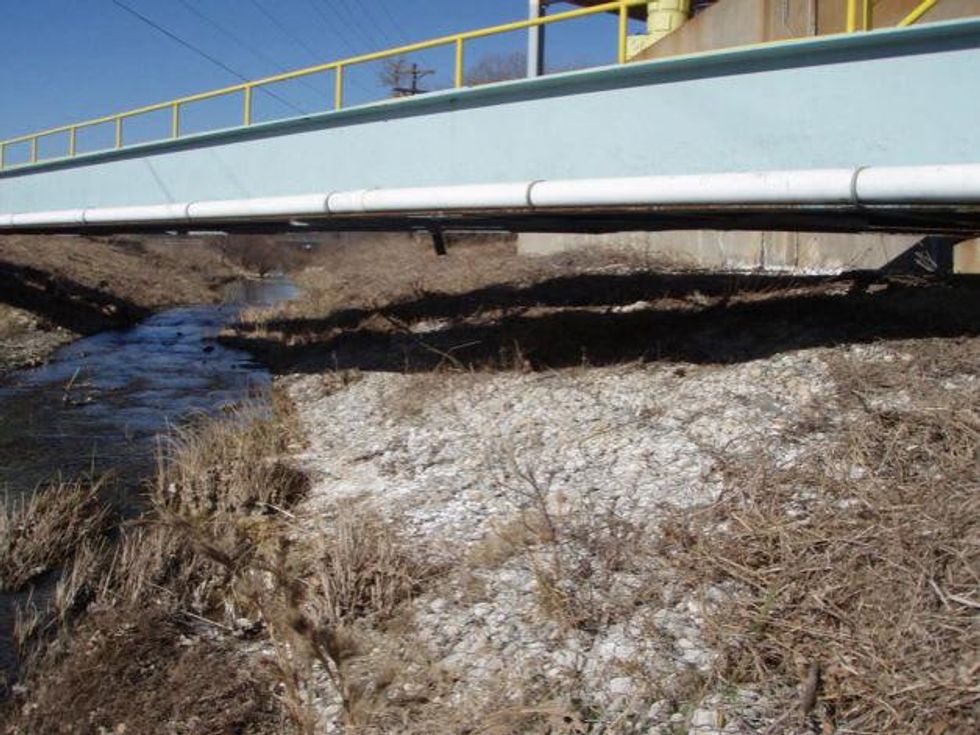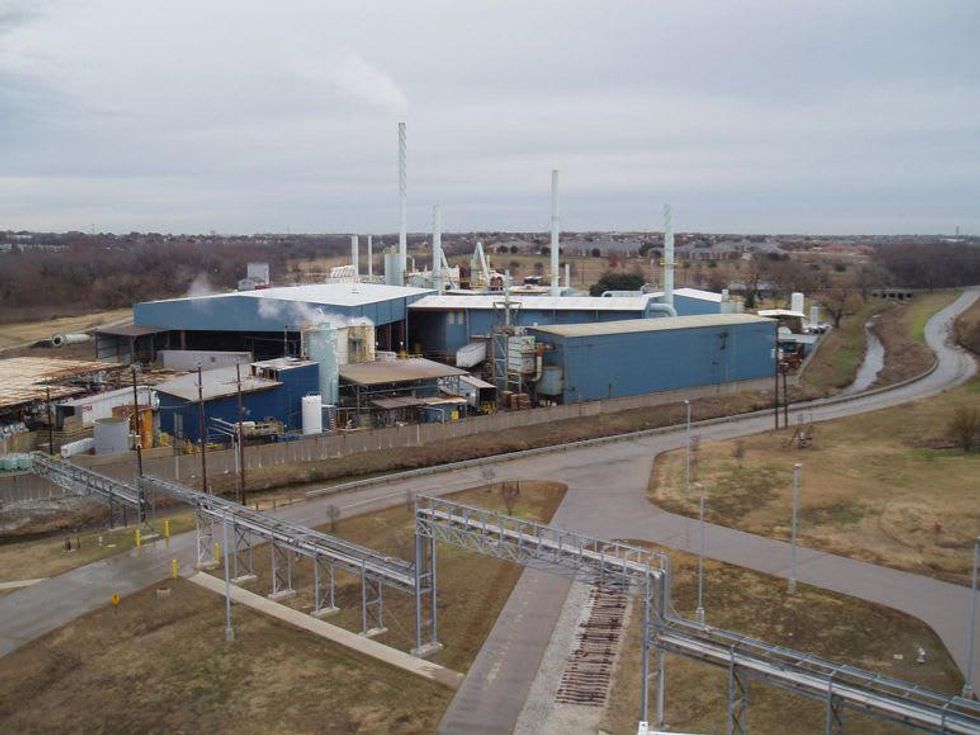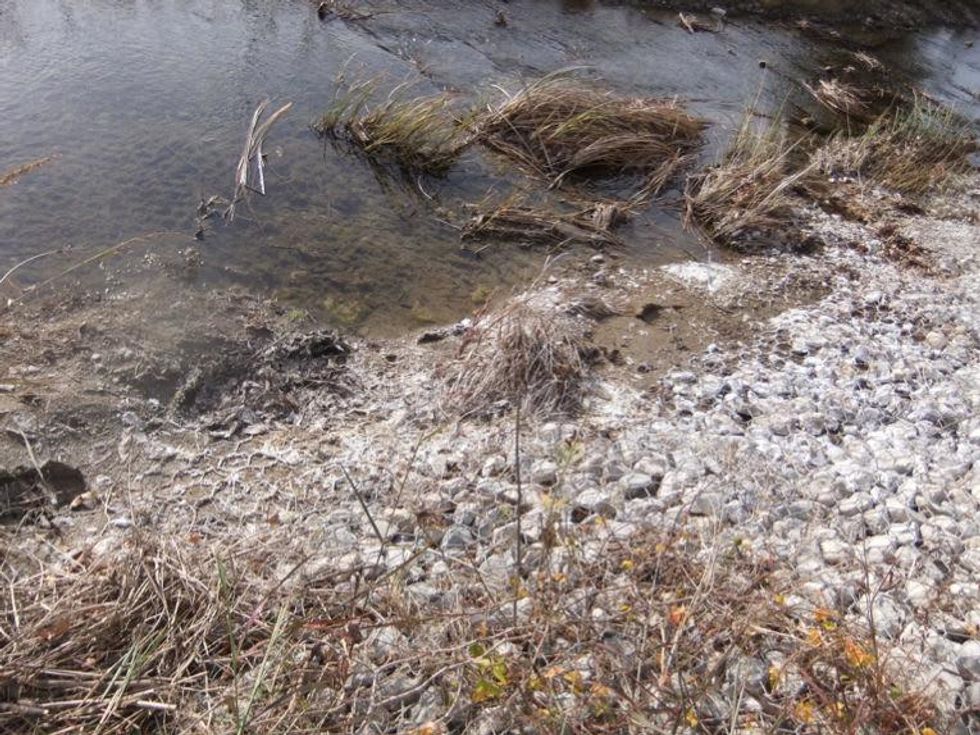Don't Go In The Water
Environmental group exposes water contamination in Frisco's Stewart Creek
An environmental activist group has released a report calling the water in Frisco's Stewart Creek contaminated, with a charge that the City of Frisco knows about it. This is the same creek that the city is proposing to feed the new $23 million Grand Park development.
Frisco Unleaded found studies commissioned by the City of Frisco showing many instances of chemical contamination. The group is asking the EPA to take control of cleanup efforts and declare “imminent danger” at the site. City officials maintain that a voluntary cleanup program is sufficient.
The studies, which were released in March and May of 2013, were only made public when Frisco Unleaded completed Freedom of Information Act requests to the city. CultureMap has also reviewed copies of the studies.
"This is a family-oriented community, and they look forward to that park being there," Frisco's Mack Borchardt says.
A May 2013 survey from Southwest Geoscience noted that portions of Stewart Creek had “arsenic, cadmium and lead concentrations above the Texas Commission on Environmental Quality ecological benchmarks.” There’s evidence that the creek was contaminated for decades by the Exide Technologies battery recycling plant, which opened in the 1960s and was shut down in November 2012.
The interim survey also recognized other industrial impacts of the Exide facility, including the presence of lead slag and batter chips. The survey called for further study and remediation efforts.
“These reports show why any activity downstream of the smelter, including the enjoyment of the new Grand Park, will be impossible without a comprehensive cleanup of the entire Exide site,” Friso Unleaded’s Meghan Green said.
In November 2011 (a year before the Exide plant was completely shut down), Southwest Geoscience conducted another study of Stewart Creek "in the vicinity of Grand Park." Southwest received the study in March 2013. According to its findings, 71 percent of sediment samples from Stewart Creek had unacceptable levels of lead, cadmium and arsenic.
Mack Borchardt, a special assistant to the city manager who is assigned to the Grand Park project, says the concrete knowledge of arsenic and lead contamination in Stewart Creek is "relatively new information." However, the lifelong Frisco resident said many people suspected the Exide plant had polluted the waterway.
Borchardt says the concept for Grand Park was developed "a few years ago" and he's not sure of the exact timeline of when the city became aware of definite pollution in Stewart Creek and when it decided to build a water-based recreation facility fed by the creek.
The City of Frisco touts Grand Park as a unique, 275-acre development with a variety of family friendly water activities.
"I'm not an expert. I'm not a technical person, so to speak," Borchardt says, adding, "This is a family-oriented community, and they look forward to that park being there."
Frisco Unleaded also released an email from Dorothy Lewis of the Texas Commission on Environmental Quality. In it, Lewis recognized that battery chips are washing up on the shores of Stewart Creek and are likely contaminated with higher than acceptable levels of lead. Lewis raised the possibility of a battery chip flowing from Stewart Creek to Grand Park and ultimately finding its way into a child’s mouth.
Borchardt emphasizes that the park is still in the very early planning stages. He says the city is working closely with the EPA and Texas Commission on Environmental Quality to cleanup the creek and the area surrounding the proposed park.
"It is not developed. It is basically raw farmland," he says. "Now is the time to do that, at the beginning phases before any construction takes place."




 David and Melissa Loder's Elf Town is on Penbrook Court in the Deerfield subdivision of Plano. Photo courtesy of David and Melissa Loder
David and Melissa Loder's Elf Town is on Penbrook Court in the Deerfield subdivision of Plano. Photo courtesy of David and Melissa Loder